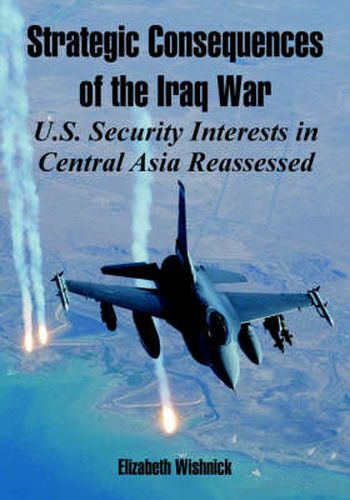Readings Newsletter
Become a Readings Member to make your shopping experience even easier.
Sign in or sign up for free!
You’re not far away from qualifying for FREE standard shipping within Australia
You’ve qualified for FREE standard shipping within Australia
The cart is loading…






This title is printed to order. This book may have been self-published. If so, we cannot guarantee the quality of the content. In the main most books will have gone through the editing process however some may not. We therefore suggest that you be aware of this before ordering this book. If in doubt check either the author or publisher’s details as we are unable to accept any returns unless they are faulty. Please contact us if you have any questions.
Central Asia is a key theater in the war on terrorism where fragile new states are attempting to consolidate political power, build legitimacy, and stoke economic development at the same time that they face a range of threats with security forces badly in need of reform. While the United States has recognized the pivotal role of Central Asia and greatly expanded its activities there, this is a new venue for America. U.S. policymakers are learning in stride as they seek ways to both strengthen the Central Asian states and to encourage them to undertake badly needed political reforms. In this monograph, Elizabeth Wishnick builds on the analysis in her important 2002 SSI study, Growing U.S. Security Interests in Central Asia. She contends that by highlighting antiterrorism, the United States addresses a symptom rather than the causes of instability in Central Asia; thus it is contributing to the radicalization of political opposition movements and discrediting both democratization and the U.S. commitment to it. Instead, she argues, the United States should do more to address the underlying human security problems in Central Asia, which increase its vulnerability to terrorist movements.
$9.00 standard shipping within Australia
FREE standard shipping within Australia for orders over $100.00
Express & International shipping calculated at checkout
This title is printed to order. This book may have been self-published. If so, we cannot guarantee the quality of the content. In the main most books will have gone through the editing process however some may not. We therefore suggest that you be aware of this before ordering this book. If in doubt check either the author or publisher’s details as we are unable to accept any returns unless they are faulty. Please contact us if you have any questions.
Central Asia is a key theater in the war on terrorism where fragile new states are attempting to consolidate political power, build legitimacy, and stoke economic development at the same time that they face a range of threats with security forces badly in need of reform. While the United States has recognized the pivotal role of Central Asia and greatly expanded its activities there, this is a new venue for America. U.S. policymakers are learning in stride as they seek ways to both strengthen the Central Asian states and to encourage them to undertake badly needed political reforms. In this monograph, Elizabeth Wishnick builds on the analysis in her important 2002 SSI study, Growing U.S. Security Interests in Central Asia. She contends that by highlighting antiterrorism, the United States addresses a symptom rather than the causes of instability in Central Asia; thus it is contributing to the radicalization of political opposition movements and discrediting both democratization and the U.S. commitment to it. Instead, she argues, the United States should do more to address the underlying human security problems in Central Asia, which increase its vulnerability to terrorist movements.